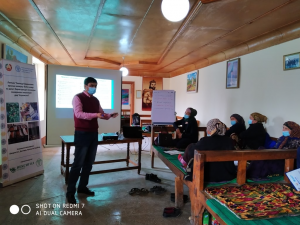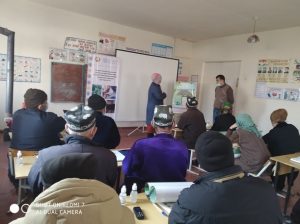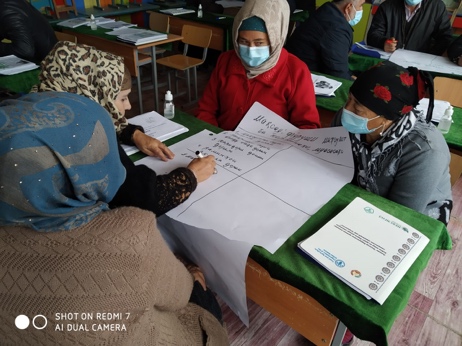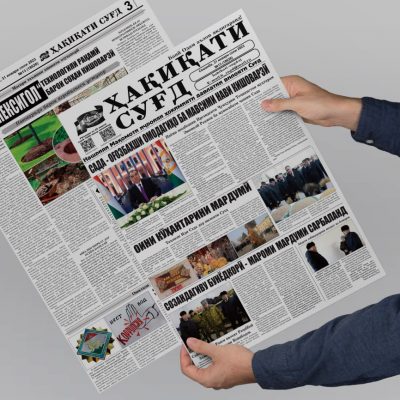The training module entitled “Agribusiness management and basics of food safety for small and medium farmers” was developed by technical experts from the consortium of NM and MIS. It is based on the FAO material on cost-effective management tools for ensuring food quality and safety and agribusiness management for producer associations, which were adapted using examples and exercises based on the local context.
The training consists of four modules for four days of training, each divided into sub-topics. Module 1 discusses the relationship between the enterprise and the market, the characteristics of long and short value chains, and tools for collecting and analysing market information for making business decisions. Module 2 covers systems and tools for improving food quality and safety management in agricultural production. Module 3 focuses on the possibilities of uniting small producers into various forms of producer associations. Module 4 discusses planning as a tool for quality and food safety management in small and medium-sized agricultural enterprises.
Totally, 160 farmers, including 71 women (44%) and 43 young farmers (27%), with an average age of 47 years old participated in the training, which are producing agricultural products in the land area of 657,83 ha.
 |
 |
 |
|
Use case |
Supply chain management |
|
Funding |
FAO |
|
Focus Area |
The objective of the sub-projects is to contribute to the FAO Organizational objective “Enable inclusive and efficient agricultural and food systems”, and to the project “Adding value to urban-rural linkages for developing more efficient food systems in small and medium-size cities and their surroundings in Tajikistan” |
|
Duration |
December 1, 2019 – December 25, 2020 |
|
Coverage |
Four districts of Sughd, Khatlon and DRS: Shahriston, Dangara, Hisor and Nurobod |
|
Beneficiaries |
Smallholder farmers, including female and male youth |
|
Partners |
|
|
Key activities |
(1) Developing training materials on building farmers’ capacities in agribusiness management and basics of food safety in the Russian and Tajik languages; (2) Conducting eight four-day trainings for farmers on these topics |






